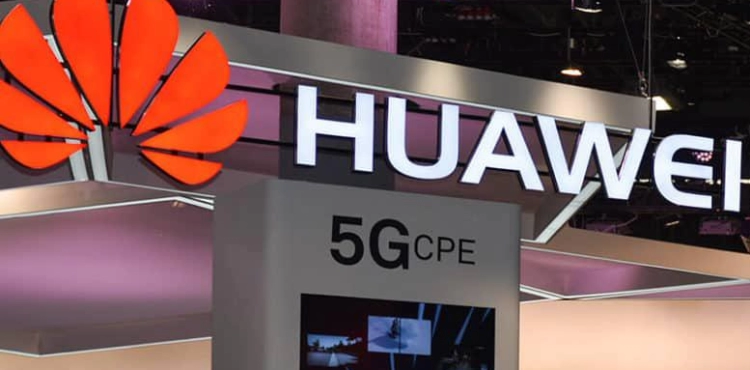An informed source said that the British government is considering allowing the participation of Chinese company, Electronics and Communications Equipment Huawei Technologies, in developing fifth generation telecommunications networks in Britain, while Prime Minister Boris Johnson is preparing to reject an invitation US President Donald Trump to impose a ban on the Chinese company for security reasons.
The news agency "Bloomberg" quoted the source as saying that the decision, which the British ministers will reach, is expected to be announced in parliament next week.
This comes at a time when the administration of US President Donald Trump has pressed the Johnson government in recent weeks to persuade Britain to exclude the Chinese company from the process of developing the fifth generation of communication networks, claiming that using the Chinese company´s technology could allow Beijing to spy on vital institutions in Britain. The Chinese company has consistently denied any security risks in using its products.
"Bloomberg" indicated that the British government has not yet reached a final decision on this issue and that the team assigned to study it will review all options in the coming days.
On Monday, European Union Commissioner for Internal Market Terry Brighton announced that the bloc would not explicitly prohibit the Chinese telecom giant Huawei or any suppliers of fifth-generation mobile network equipment, when the bloc discloses its recommendations to member states aimed at mitigating security risks, according to a news agency. Bloomberg. Brighton told a news conference in Paris that the European Union would unveil a set of strict and prudent measures recommended by the end of this month, adding that no company would be excluded in the EU recommendations.
The European bloc sought to coordinate the position of member states on the fifth generation networks, in an attempt to avoid possible retaliation by the United States or China by targeting each European country separately.
The European Union countries agreed to use trustworthy partners to develop the infrastructure that is necessary for national security, and pledged to consider the laws of the supplier´s home country before purchasing its products. However, the European Union does not have enough powers to tell member states what to do, as any decision to ban companies for national security reasons rests with member states. Many telecommunications companies in various European countries have already concluded agreements with Huawei regarding the purchase of 5G mobile network equipment.












